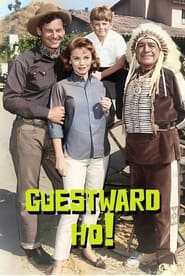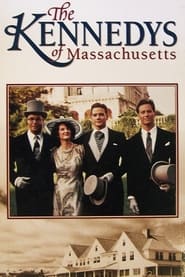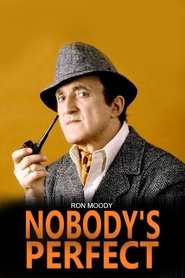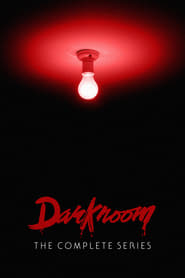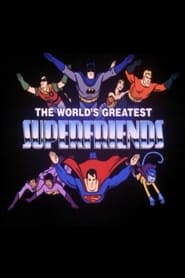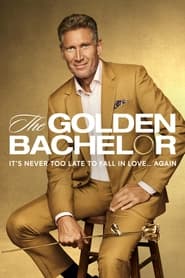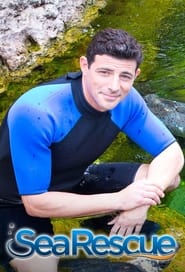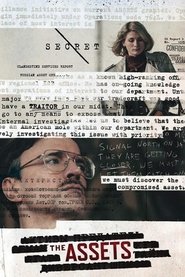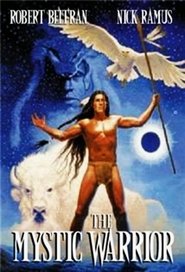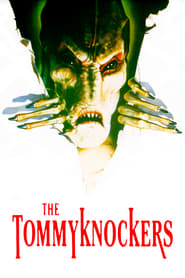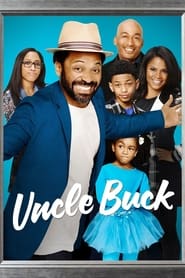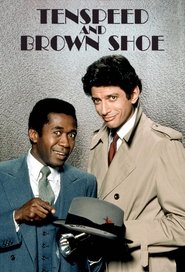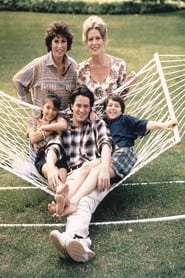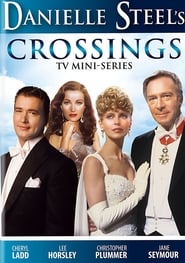Abc TV Series - Page 54
-
a.k.a. Pablo
1984
star 6a.k.a. Pablo is an American sitcom that aired on ABC from March to April 1984. -
Guestward, Ho!
1960
star 4Guestward, Ho! is an American situation comedy which aired on the ABC network in the 1960-1961 television season, based on the 1956 book of the same title by Patrick Dennis, author of Auntie Mame. -
The Kennedys of Massachusetts
1990
star 7.2The Kennedys of Massachusetts is a 1990 TV miniseries that aired on ABC. Focusing mainly on the fifty-four year marriage of Joseph P. Kennedy, Sr. and Rose Kennedy. The events depicted in the series are based upon the book by Doris Kearns Goodwin titled The Fitzgeralds and the Kennedys : An American Saga. The series aired across three nights, an earned an Emmy and Golden Globe. -
Nobody's Perfect
1980
star 6.5Nobody's Perfect is an American situation comedy television series, broadcast on ABC, about a bumbling police detective; it aired for two months in 1980, for a total of eight episodes. In the UK this program is known as Hart of the Yard. It was broadcast in France only once in 1984 on TF1 under the name Cher Inspecteur. In Germany it was known as Hart auf Hart. -
B.A.D. Cats
1980
star 5B.A.D. Cats is an American action/police drama that aired on ABC from January until February 1980 on Friday nights at 8 PM Eastern time. The series stars Asher Brauner, Steve Hanks, and Michelle Pfeiffer in one of her first major acting roles. The acronym B.A.D Cats stood for 'Burglary Auto Detail, Commercial Auto Thefts'. -
Darkroom
1981
star 7.5Darkroom is an American television thriller series which ABC transmitted from November 27, 1981 to January 15, 1982. It was an anthology horror/thriller series, similar in style to Rod Serling's Night Gallery. Each 60-minute episode featured two or more stories of varying length with a new story and a new cast, but each of the episode wraparound segments was hosted by James Coburn. Among the performers who appeared on the series were Steve Allen, Esther Rolle, Lawrence Hilton-Jacobs, David Carradine, Billy Crystal, and June Lockhart. -
Total Security
1997
Total Security
1997
A high-tech security firm in Los Angeles is the setting for a world of espionage, threats, investigations, and surveillance. -
The World's Greatest Super Friends
1979
star 7.6The World's Greatest Super Friends is an American animated television series about a team of superheroes which ran from September 22, 1979 to September 27, 1980 on ABC. It was produced by Hanna-Barbera and is based on the Justice League and associated comic book characters published by DC Comics. -
The Golden Bachelor
2023
star 3One hopeless romantic is given a second chance at love in the search for a partner with whom to share the sunset years of life. The women arriving at the mansion have a lifetime of experience, living through love, loss and laughter, hoping for a spark that ignites a future full of endless possibilities. In the end, will our Golden man turn the page to start a new chapter with the woman of his dreams? -
Sea Rescue
2012
Sea Rescue
2012
Hosted by ABC News correspondent Matt Gutman, the award-winning Sea Rescue™ tells the stories of marine animal rescue, rehabilitation, and return to the wild by the dedicated men and women of the SeaWorld® Rescue Team and partner organizations. With rescue teams on call 24/7 and a legacy spanning more than five decades, SeaWorld has rescued over 26,000 whales, dolphins, sea lions, penguins, manatees, sea turtles and birds, with the ultimate goal of successfully rehabilitating and returning each one to the wild. Sea Rescue shares the teams’ incredible and heartwarming adventures through a combination of first-hand accounts, expert insights, and remarkable footage that will inspire, educate, and enthrall viewers! -
The Assets
2014
star 6.91985 serves as the backdrop to the final showdown of the Cold War when Sandy and her partner Jeanne Vertefeuille vowed to find the mole that would turn out to be the most notorious traitor in US history, Aldrich Ames. Sandy is in a race against time to save the Soviet intelligence officers from being caught and killed. Living her own double life at home, this beautiful wife and mother vowed to stop at nothing until she uncovered the truth. -
The Mystic Warrior
1984
star 5.5The Mystic Warrior is a 1984 TV movie about a band of Native American Sioux and the efforts of one man to save his people from destruction through the use of mysterious powers handed down by ancestors. The movie was originally a nine hour mini-series entitled Hanta Yo to be aired in 1980, instead aired in 1984 as a five hour mini series with the new name. The movie was never released on VHS or DVD although it has been shown on cable TV. Mystic Warrior was entertaining, but failed to draw viewers away from such formidable competition as The Jeffersons, Alice, and One Day at a Time. -
The Tommyknockers
1993
star 5.6A buried UFO slowly turns local inhabitants into gizmo-building alien mutants. -
George
1993
George
1993
A retired boxer takes on a new challenge in trying to handle troubled kids. Star George Foreman, a former heavyweight champion, had better success in the TV arena when he took to pitching his popular cooking grill. -
Uncle Buck
2016
star 5.8Based on the hit movie of the same name, Uncle Buck is a fun-loving but irresponsible guy who needs a job and a place to stay. His brother and sister-in-law need some help around the house. And they just might be the answer to each other's problems. -
Tenspeed and Brown Shoe
1980
star 6.8Tenspeed and Brown Shoe is an American detective/comedy series originally broadcast by the ABC network between January and June 1980. The series was created and executive produced by Stephen J. Cannell. -
Home Free
1993
star 6Freelance journalist Matt Bailey's carefree life in his mother's home ends when his recently divorced sister Vanessa and her two children move in. -
Getting Together
1971
star 5Getting Together is an American musical situation comedy, which aired on the ABC television network during the 1971-72 season. It stars Bobby Sherman and Wes Stern as Bobby Conway and Lionel Poindexter, a songwriting duo. The pilot for the series had aired the previous spring the first season finale episode of The Partridge Family named "A Knight in Shining Armor", where Lionel and Bobby were introduced to each other by the Partridges. Sherman and Stern's characters were reportedly based on the real-life songwriting team of Boyce and Hart, who had written hits for The Monkees, Jay and the Americans, and others. New music of course was a staple of the series, provided by much of the same team that created the Partridge Family songs and records. Most of these songs were from two Bobby Sherman albums -- Getting Together and Just For You. -
Crossings
1986
star 4.8Despite rumors of impending war, the majestic ship Normandie makes its transatlantic voyage from Washington D.C., to France. Aboard is beautiful, American-born Liane De Villiers, devoted to her much-older husband, the French ambassador to the United States, and her two daughters. She meets Nick Burnham, an American steel magnate, a kind man trapped in a loveless marriage. Their passion remains unacknowledged. But when the outbreak of World War II forces Liane to flee Paris, she and Nick meet again–and pledge a love that can no longer be denied.

